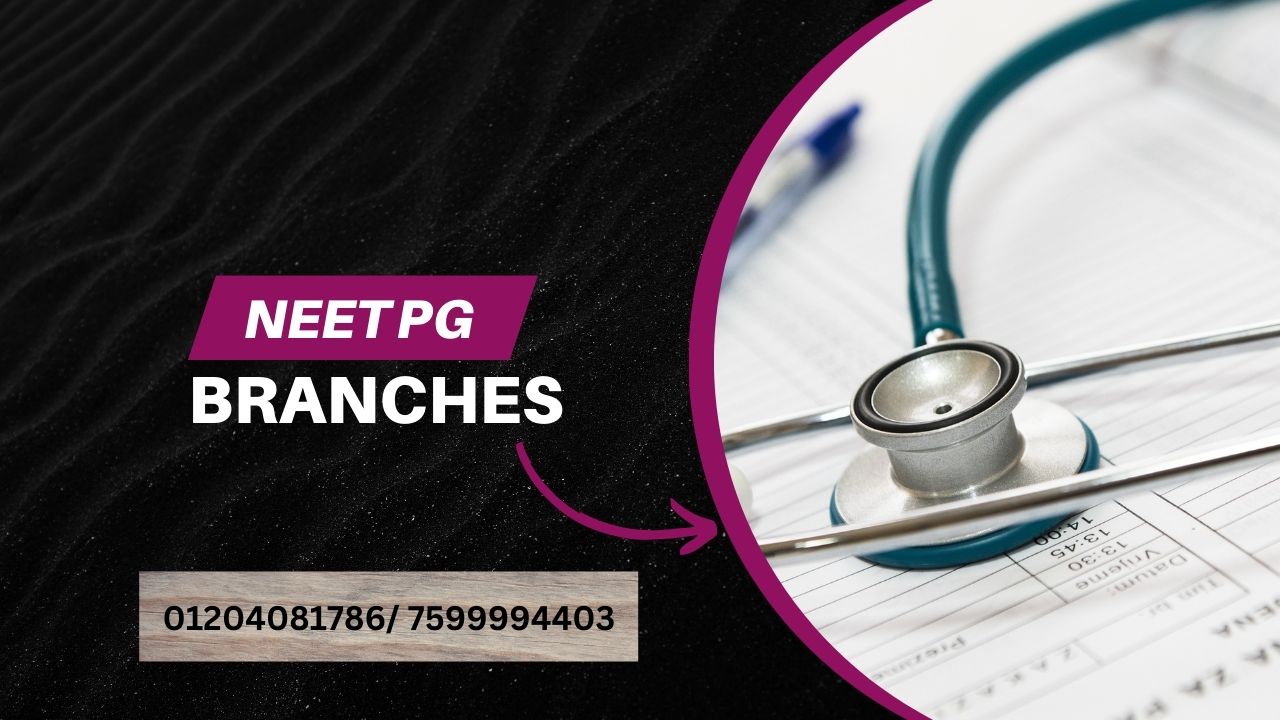
The National Eligibility cum Entrance Test (NEET) is an exam for securing a seat in MBBS programs across India. It is the only entrance exam for medical admission, and millions of students appear for the test. In this article, we discussed how many marks are required in NEET for MBBS.
Understanding NEET and Its Importance
NEET is the entrance exam for medical courses in India, and its role in determining whether a candidate can pursue a career in medicine or not. MBBS (Bachelor of Medicine, Bachelor of Surgery) is the most popular course for medical aspirants and NEET candidates need to achieve the required marks to secure admission to their college.
NEET Marks Required for MBBS
| Year | General Category Cut-off (Marks) | OBC/SC/ST Category Cut-off (Marks) |
|---|---|---|
| 2024 | 162–720 | 127–161 |
| 2023 | 137–720 | 107–136 |
| 2022 | 117–715 | 93–116 |
| 2021 | 138–720 | 108–137 |
| 2020 | 147–720 | 113–146 |
| 2019 | 134–701 | 107–133 |
What Are NEET Cut-Off Marks
The cut-off marks for NEET are the minimum marks required for candidates to qualify for the counseling process and admission. Cut-off marks based on factors like the difficulty level of the exam, the number of candidates, and the category of the student. The cut-off is announced after the NEET results are released, and it determines a student is eligible for the next stages of the admission process.
Marks Required for AIIMS and JIPMER
- AIIMS Delhi (General): Scores above 705-710 with top AIR under 100 are consistently reported for the most competitive AIIMS Delhi. The 2024 closing ranks 47 (AIIMS Delhi) and scores around 720 for General category, which supports your high score range.
- Other AIIMS (General): Your range of 660-680 is considered for admission. The 2024 General category ranks for other AIIMS often falling between 300-2500, corresponding to scores in the 680-710 range.
- JIPMER Puducherry (General): The range of 640-660 is considered fair. The 2024 closing ranks around 700 for JIPMER Puducherry (General). JIPMER Karaikal has slightly lower cutoffs.
Estimated NEET Cut-off Trends for AIIMS and JIPMER (General Category)
| S.No. | Institute/Category | Estimated NEET Score Range | Estimated All India Rank (AIR) Range |
|---|---|---|---|
| 1. | AIIMS Delhi (General) | Above 705-710 (out of 720) | Under 100 (e.g., AIR 47 for 720 score in 2024) |
| 2. | Other AIIMS Campuses (General) | Above 660-680 (often 680-710) | 300-2500 (approximate, depending on specific AIIMS) |
| 3. | JIPMER Puducherry (General) | 640-660 (e.g., around 693 score for AIR 700 in 2024) | Around 700 |
| 4. | JIPMER Karaikal (General/EWS) | Around 621 | Around 17,588 |
Factors Affecting NEET Cut-Off Marks
Some of the factors impacting the NEET cut-off for MBBS admission. These include the overall difficulty of the exam, the number of candidates appearing for the exam, number of available seats in medical colleges, and reservation policies. All these factors together decide the final cut-off scores that candidates must meet to qualify for admission.
NEET Cut Off Based on Categories
There are different cut-offs for general category students and reserved category students, such as OBC, SC, and ST. General category students typically need higher marks than those from reserved categories.
General Category Cut-Offs
Students belonging to the general category, the required NEET score typically in between 650 and 700 marks to secure admission in top government medical colleges. This is because of the higher competition and limited number of seats available.
OBC Category Cut-Offs
Students from the OBC (Other Backward Classes) category, the required marks are lower. Generally, OBC candidates need to secure around 500 to 600 marks to qualify for admission to government medical colleges.
SC/ST Category Cut-Offs
Scheduled Caste (SC) and Scheduled Tribe (ST) candidates generally need lower cut-offs compared to other categories. The NEET score for SC and ST candidates to secure an MBBS seat in government medical colleges typically ranges between 450 to 500 marks.
NEET Marks for MBBS in Government Colleges
Government medical colleges are among the most famous institutions for pursuing MBBS. They offer education and have a lower fee structure compared to private colleges. However, due to the limited number of seats, the competition for these colleges is high.
Marks Required for Top Government Colleges
To secure a seat in top government medical colleges, candidates generally need a NEET score between 675 and 700 marks. These colleges include institutions like AIIMS (All India Institute of Medical Sciences), JIPMER (Jawaharlal Institute of Postgraduate Medical Education & Research), and many other ranked government colleges.
Marks Required for Lesser known Government Colleges
In government colleges or colleges in rural areas, the required NEET score may be lower. Candidates may need to score between 500 and 600 marks, depending on the state and the availability of seats.
NEET Marks for MBBS in Private Colleges
While private medical colleges have a large number of seats compared to government colleges, the required NEET score for admission is often lower. Private colleges, however, charge higher fees for MBBS courses.
Marks for Private Colleges in Popular States
Private medical colleges in states like Maharashtra, Karnataka, or Tamil Nadu, candidates from the general category generally need to secure around 575 to 600 marks. The cut off may depend on the college’s reputation and available seats.
Marks for Private Colleges in Other States
Private colleges in less popular states or regions, the NEET score required to secure an MBBS seat can be even lower. Candidates may need to score 400 to 500 marks, especially in colleges with relatively less demand or lower ranking.
The Role of State Quota in NEET Admission
Each state in India has its own state quota system that reserves a certain percentage of seats for local candidates. This can decide the NEET marks required for admission in state medical colleges and government private medical colleges.
State Quota for Government Medical Colleges
In states with a high number of medical seats, such as Uttar Pradesh, Madhya Pradesh, or Andhra Pradesh, candidates from those states may benefit from a lower cut-off compared to students.
State Quota for Private Medical Colleges
Some private medical colleges also have a state quota system that favors local candidates for MBBS seats. As a result, students from specific states may find the cut-offs to be lower compared to students applying from outside the state.
Reservation Policies and NEET Cut-Offs
Reservation policies in medical admissions also affect the marks required for MBBS admission. The government reserves a percentage of seats for various categories such as SC, ST, OBC, and EWS (Economically Weaker Sections).
Impact of SC/ST Reservation on NEET Marks
Reserved categories like SC and ST typically have a lower NEET cut-off than the general category. While general category candidates need 675 to 700 marks, SC/ST candidates may qualify for admission with a score as low as 450 to 500 marks.
OBC and EWS Reservation Impact on NEET Cut-Offs
OBC and EWS candidates generally have a lower cut-off compared to general category candidates. The required NEET score for OBC candidates is between 500 and 600 marks, while EWS candidates usually fall in a similar range.
Deemed University MBBS Cut-offs
Deemed universities are private medical colleges with university status, and they participate in the central NEET counseling under the All India Quota. Cut-offs for deemed universities are generally lower than government colleges. Prestigious deemed universities like Kasturba Medical College (Manipal) or Sri Ramachandra Medical College often have cut-offs in the range of 520–600+ for general category students. Lesser-known deemed colleges may admit students with scores as low as 300–450. However, their fee structures are much higher—often between ₹12–25 lakhs per annum with some deemed medical colleges exceeding this range (e.g., GITAM ₹25.37 lakhs, Amrita ₹25 lakhs, DY Patil Pune ₹26.50 lakhs).
Understanding NEET Ranks vs. Scores
In NEET, your score is the total marks you obtain out of 720, while your rank is your position among all aspirants appearing for the exam. A small difference in marks can cause a large shift in rank, especially at higher score levels. For example, scoring 710 might place you in the top 50, but dropping to 680 could push your rank into the 1000s. While colleges consider both rank and score, admissions are mostly based on rank since it shows your standing among aspirants.
How to Improve Your NEET Score
- Focus on NEET Syllabus and Time Management
A foundation in these subjects is essential. Creating a study schedule and managing time efficiently for success.
- Take Regular Mock Tests
Regular practice with mock tests and previous years question papers will help you familiarize yourself with the exam format and improve your speed and accuracy.
- Join Coaching or Online Courses
For better guidance and structured study, joining a coaching institute or an online course for NEET preparation can be beneficial. These resources provide expert faculty, study materials, and regular assessments to track progress.
Key Documents Required for NEET Counselling
To participate in NEET counseling, students must prepare several documents for verification. The essential documents include:
- NEET Admit Card and Scorecard
- Class 10 and 12 Mark Sheets and Certificates
- Government-issued Photo ID (Aadhaar, Passport, etc.)
- Category Certificate (SC/ST/OBC/EWS, if applicable)
- Domicile/Residence Certificate (for state quota)
- Passport-size photographs (as per NEET form specs)
- Provisional Allotment Letter (during later rounds)
Carrying both original and photocopies is mandatory. Lack of even a single document may disqualify you from seat allotment or delay admission.
Bond/Service Liability in Medical Colleges
Many government medical colleges in India have a service bond that requires students to serve in rural or public health centers after completing their MBBS. These bonds range from 1 to 5 years, depending on the state. For example states like Tamil Nadu and Uttar Pradesh have a 2-year rural service bond, while in Maharashtra, the bond is for 1 year with a penalty (₹10–25 lakhs) for non-compliance. Deemed and private universities generally do not have such bonds. Students should research the bond policy of the college they are joining, as it impacts future plans, especially for PG preparation or working abroad.
FAQs
Ans. The NEET cut-off general category students, it usually falls between 650 and 700 marks for top government colleges. For reserved categories like OBC, SC, and ST, the cut-off may range between 450 to 600 marks.
Ans. Yes, you can secure an MBBS seat in private medical colleges or under state quotas with 500 marks.
Ans. Improving your NEET score requires dedication, regular study, practicing mock tests, and managing your time efficiently.
Ans. Yes, NEET follows reservation policies for SC, ST, OBC, and EWS categories, which lowers the cut-off marks for candidates in these categories.
Ans. Top government colleges, the minimum NEET score for general category students typically ranges between 650 and 700 marks. For reserved categories, the required score may be lower, usually between 450 and 600 marks.
Connect with Us
Start your medical educational journey with the Admission Zone! Contact us today on 9205488482/ 7599994403 or WhatsApp us to explore a world of educational possibilities in the state and secure your admission to a brighter future.
Conclusion
To secure an MBBS seat in a medical college, understanding the NEET marks required is essential. The required marks vary depending on factors like category, reservation, and whether the college is government or private. General category students typically need between 675 and 700 marks for top government colleges, while students in reserved categories may qualify with lower marks.







